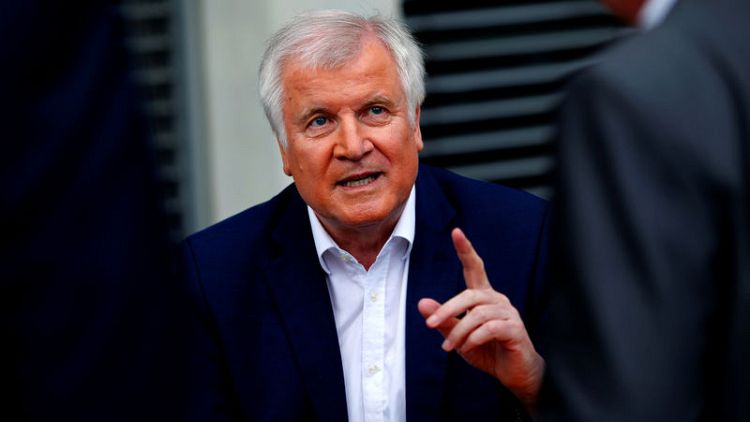BERLIN (Reuters) - Germany announced a new agency on Wednesday to fund research on cyber security and to end its reliance on digital technologies from the United States, China and other countries.
Interior Minister Horst Seehofer told reporters that Germany needed new tools to become a top player in cyber security and shore up European security and independence.
"It is our joint goal for Germany to take a leading role in cyber security on an international level," Seehofer told a news conference with Defence Minister Ursula von der Leyen. "We have to acknowledge we're lagging behind, and when one is lagging, one needs completely new approaches."
The agency is a joint interior and defence ministry project.
Germany, like many other countries, faces a daily barrage of cyber attacks on its government and industry computer networks.
However, the opposition Greens criticised the project. "This agency wouldn't increase our information technology security, but further endanger it," said Greens lawmaker Konstantin von Notz.
The agency's work on offensive capabilities would undermine Germany's diplomatic efforts to limit the use of cyber weapons internationally, he said. "As a state based on the rule of law, we can only lose a cyber politics arms race with states like China, North Korea or Russia," he added, calling for "scarce resources" to be focused on hardening vulnerable systems.
Germany and other European countries also worry about their dependence on U.S. technologies. This follows revelations in 2012 by U.S. NSA whistleblower Edward Snowden of a massive spying network, as well as the U.S. Patriot Act which gave the U.S. government broad powers to compel companies to provide data.
"As a federal government we cannot stand idly by when the use of sensitive technology with high security relevance are controlled by other governments. We must secure and expand such key technologies of our digital infrastructure," Seehofer said.
(Reporting by Andrea Shalal, additional reporting by Thomas Escritt; Editing by Angus MacSwan and David Stamp)
